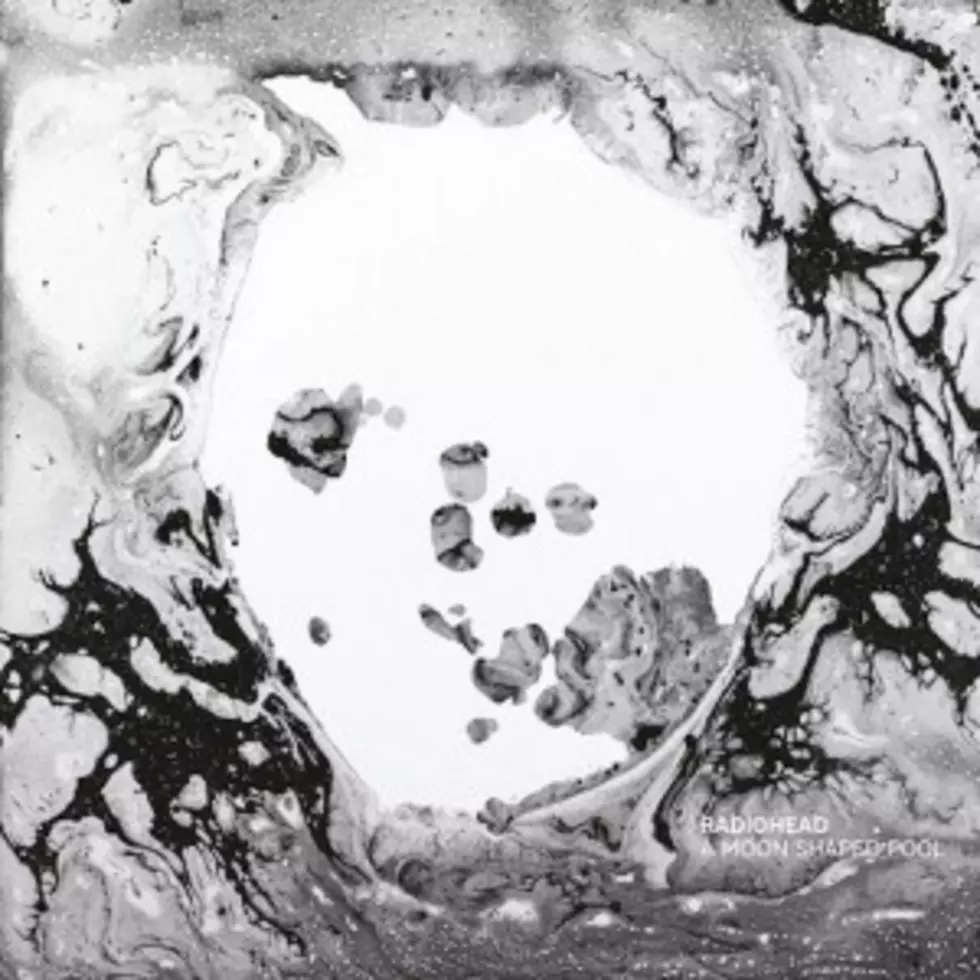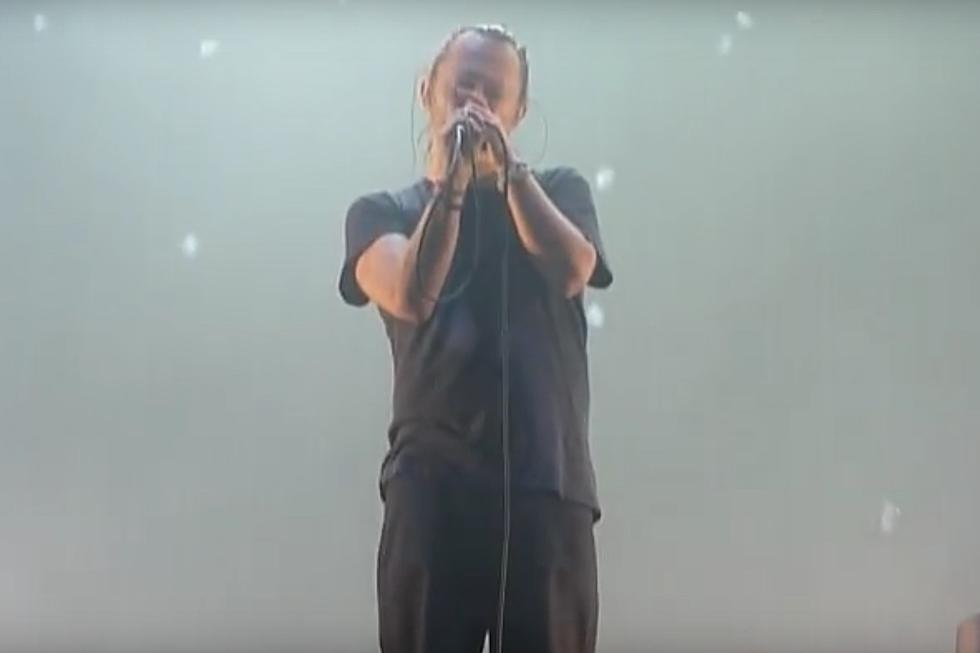
Album Review: Radiohead Prove True Love Really Does Wait With ‘A Moon Shaped Pool’
"Just don't leave. Don't leave."
Those are the last words Thom Yorke sings in "True Love Waits," the closing track on A Moon Shaped Pool, but it's far from the first time Radiohead fans have heard them. "True Love Waits" first emerged in 1995 at shows in support of The Bends – the album before Radiohead began to evolve from a band into something more like a postmodern ideology.
Six years later, an unfettered acoustic version of "True Love Waits" became the last song on Radiohead's live compilation, I Might Be Wrong. Recorded on tour in support of the preternaturally brilliant Kid A (2000) and Amnesiac (2001), the starkly organic sound of Yorke's acoustic guitar and the sheer clarity in his voice served as a reminder that, beneath all the vocoder and robotic droning, Radiohead had clung to their humanity after all.
Now, more than 20 years since they debuted the song, "True Love Waits" is the final "new" track on A Moon Shaped Pool. It's Radiohead's ninth album and it could almost serve as a bizarro greatest hits package: seven of the 11 songs had already been out there in one form or another and some have been fan favorites for years. Yorke first played the bossa nova "Present Tense" during a solo show in 2009 and the band workshopped the ominous lead single, "Burn the Witch" three times before: during the sessions for Kid A, 2003's Hail to the Thief and 2007's In Rainbows. But, as is the case with the new, lush and layered version of "True Love Waits," there's only a vague, but pervasive sense of familiarity.
While A Moon Shaped Pool is unmistakably a Radiohead album (and potentially their most engaging since Kid A), it's also like no Radiohead album before it. Instead of relentlessly challenging the listener and subverting traditional pop convention, Radiohead finally seem willing to give just a little. They sound exactly like you've probably always wanted them to sound. That's not to say they aren't still operating at a level beyond the reach of mere mortals. A Moon Shaped Pool is gorgeous from nearly all angles; quasi-futuristic and timelessly classicist, it's simultaneously unnerving and soothing.
The most obvious change is the move away from pure digitalism back towards organic and analog sound. While there's no shortage of electronic elements (listen with the right headphones and you'll be immersed in a glitchy, undulating world), there's also far more old-school guitar, bass and actual drumming than Radiohead have employed this century. Maybe Jonny Greenwood's soundtrack work for Paul Thomas Anderson's There Will Be Blood, The Master and Inherent Vice forced him to approach music from a more human perspective.
But the warmer tone of A Moon Shaped Pool also comes from another source: an abundance of symphonic strings and Greenwood's epic, increasingly cinematic arrangements. In the past, Radiohead have used orchestras more sparingly than you'd think – usually for dramatic (and atonal) effect in songs like Kid A's "How To Disappear Completely" and The King of Limbs' "Codex." Here, however, many songs are built entirely around the strings (the achingly beautiful "Glass Eyes") while others ("Daydreaming") use them to build and relieve tension in a way that feels entirely (if not suspiciously) satisfying.
All throughout, it's also impossible not to notice how strangely easy it is to understand Thom Yorke. It's not just how clearly you can actually discern his soulful vocals on songs like "Desert Island Disk," but how specific and relatable his lyrics are. In "Identikit," when he sings, "When I see you messing around, I don't want to know" before breaking into an actual chorus of "broken hearts make it rain," it's hard to believe he isn't covering Adele. Then Greenwood tears into the most blistering guitar solo Radiohead have unleashed since the '90s. It's crazy.
But this is Radiohead in A Moon Shaped Pool, and maybe it's been them all along. They always knew you loved The Bends. They just wanted to take you somewhere else. What if 1995's "True Love Waits" was a clue that Radiohead planned to take most of the following two decades to push the limits of conventional music but that they'd eventually bring all of it together?
It's probably unlikely they could've mapped out such an elaborate sequence of events and planted musical easter eggs along the way. After all, this would've been before J.J. Abrams. But A Moon Shaped Pool finally feels like a Radiohead album that doesn't antagonistically delay gratification or require repeated listenings to fully appreciate. And, for a band who communicate almost exclusively through their music, it's about as close to a love note to fans as Radiohead have ever written.
Worst to First: Radiohead's First Eight Albums Ranked
More From Diffuser.fm









